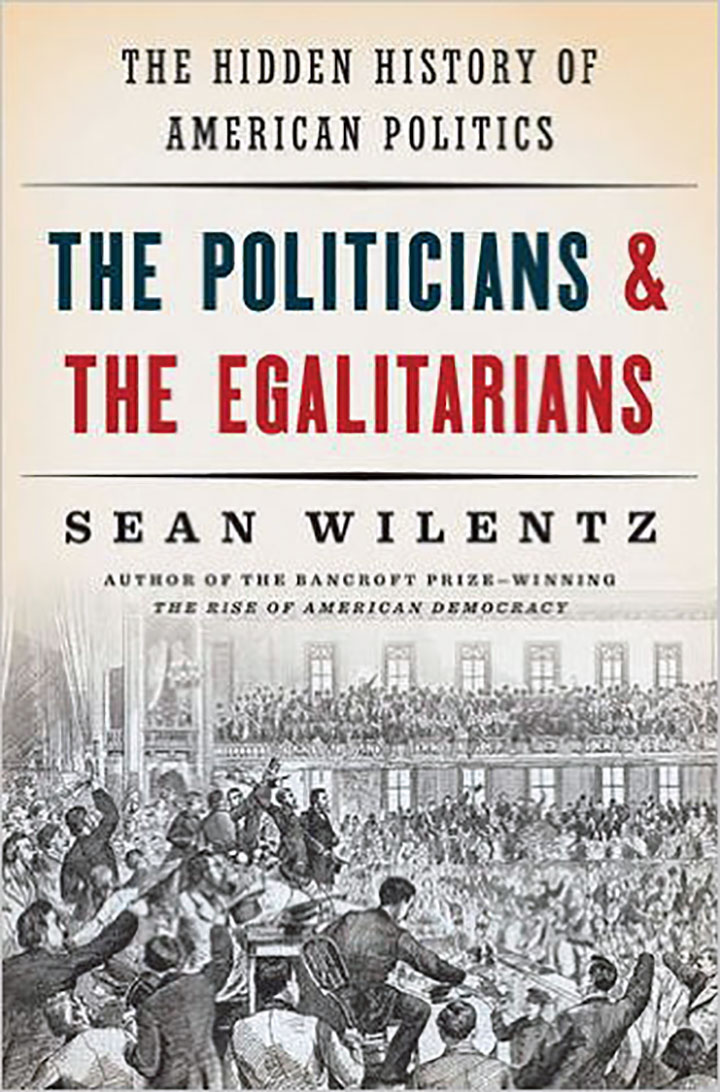
 We live in an anti-political age, but in his latest book, The Politicians & The Egalitarians: The Hidden History of American Politics, Professor Sean Wilentz contends that it is those who have embraced politics — far more than those who profess to rise above it or disdain it from afar — who have enabled the country to make its greatest social and economic advances.
We live in an anti-political age, but in his latest book, The Politicians & The Egalitarians: The Hidden History of American Politics, Professor Sean Wilentz contends that it is those who have embraced politics — far more than those who profess to rise above it or disdain it from afar — who have enabled the country to make its greatest social and economic advances.
This is the eighth book for Wilentz, the George Henry Davis 1886 Professor of American History. The Politicians & The Egalitarians is a collection of previously published essays, but they make a common point about the nature of American democracy.
Although Thomas Jefferson insisted in his first inaugural address that “we are all republicans, we are all federalists,” he knew that partisanship was not only a central feature of the American system, but a highly useful one that channeled popular sentiment into opposing forces that could enact it into law. Nevertheless, Wilentz writes, “The American dream of politics without conflict, and of politics without political parties, has a history as old as American politics.”
But that dream has always been a chimera, Wilentz suggests. Anti-partisanship not only is futile, it can be dangerous. “The antiparty current is by definition antidemocratic,” he writes, “as political parties have been the only reliable vehicles for advancing the ideas and interests of ordinary voters.” President Barack Obama came into office pledging to preside over an era of post-partisanship but wised up, Wilentz says, in the face of Republican intransigence. His signature legislative accomplishment, the Affordable Care Act, was muscled through Congress on a strict party-line vote.
Although Wilentz praises outsiders for their intellectual contributions in the cause of expanding democracy, he emphasizes that political leaders operate under the imperative of getting things done. Frederick Douglass, for example, was critical of Abraham Lincoln for moving too slowly on emancipation, but came to appreciate him later. This was not, Wilentz writes, “because [Douglass] turned ‘conservative,’ but because he came to recognize, as Lincoln did instinctively, the difference between the role of the radical reformer and the role of the politician.”
Wilentz is particularly sharp in rebutting accusations from the far left, including from many academics, that liberals have championed social justice only when protesters have forced them to do it. Most historians, he explains in an interview, “have come to be so mistrustful of politics. They believe that politicians or office-holders need to be pushed to do anything, and so give the lion’s share of the credit for reforms to outside social movements. And that’s just not the way that politics has ever worked in this country.”
Many factors have weakened the parties, most recently the Supreme Court’s decision in Citizens United v. FEC, which enabled independent groups to raise and spend unlimited amounts of money. Count Wilentz among those who miss the old days. “A lot of people just don’t like political parties, and I think that is a terrible thing,” he says. “Political parties are how things get done ... in American politics. And the more we weaken them, the less gets done.”
